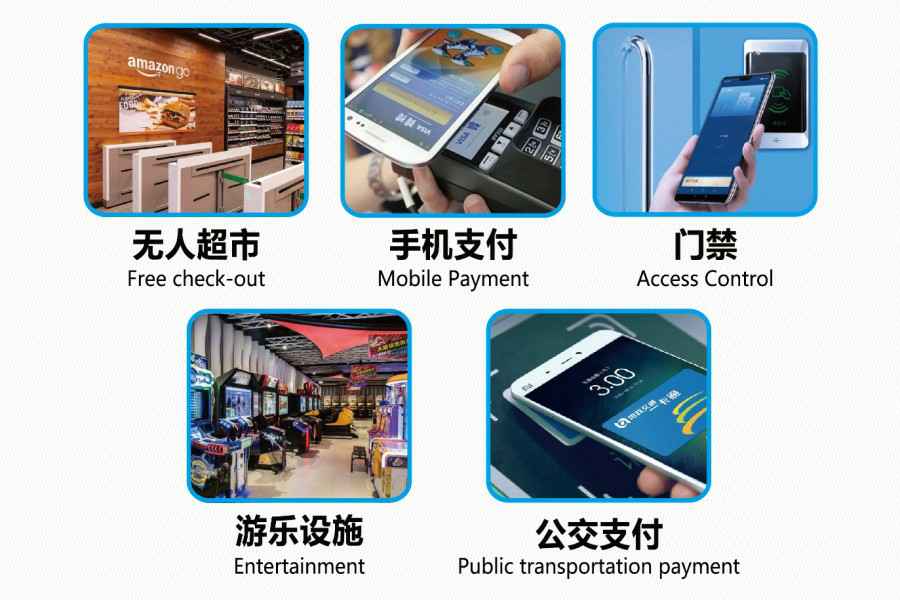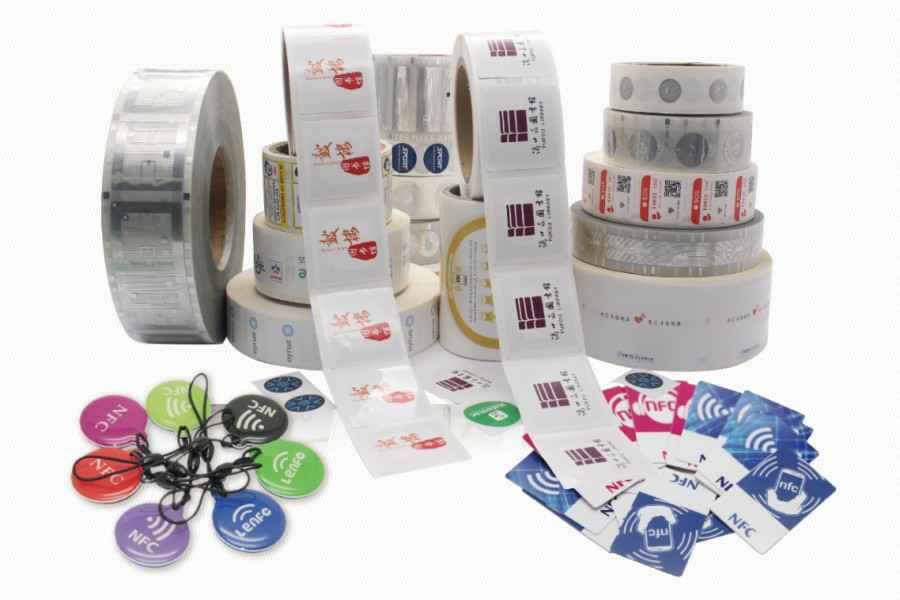Technology Exchange
What are the basic applications of NFC technology?
What are the advantages of NFC technology in payment, security and label applications?
As a popular near field communication technology in recent years, NFC has been widely used in social media sharing, cashless payment, security access control and other fields in recent years, and has a wide range of applications. So how is NFC technology used in daily life? Let's take everyone with the NFC anti-counterfeiting label manufacturer szyxiot to understand the advantages of NFC applications!
As a popular near field communication technology in recent years, NFC has been widely used in social media sharing, cashless payment, security access control and other fields in recent years, and has a wide range of applications. So how is NFC technology used in daily life? Let's take everyone with the NFC anti-counterfeiting label manufacturer szyxiot to understand the advantages of NFC applications!
1. NFC card payment application
NFC payment applications mainly refer to applications that simulate bank cards and all-in-one cards on mobile phones with NFC functions. NFC payment applications can be divided into two parts: open-loop applications and closed-loop applications.
The application of NFC virtualized into a bank card is called an open-loop application. Ideally, a mobile phone with NFC function and an analog bank card can be used as a bank card to swipe the mobile phone on POS machines in supermarkets and shopping malls. However, it is still not popularized in China. The main reason is that NFC payment as an open-loop application has a tedious industrial chain, and the interests of card vendors and solution providers behind it and the industry structure are complex. As far as the current domestic NFC open-loop application environment is concerned, due to the game of various interests, the NFC open-loop payment application uses Alipay and WeChat Pay to connect and bind, as a means of assisting Alipay and WeChat Pay for identity authentication. Featured NFC products such as NFC glue cards, NFC rings, and NFC bracelets are loved by the public. The NFC feature product collocation system to achieve open-loop application payment will also become a future trend.


The application of NFC analog card card is called closed-loop application. At present, the development of closed-loop NFC applications in China is not ideal. Although the NFC function of mobile phones has been opened in the public transportation system of some cities, it has not been popularized. The fundamental reason is that there is a card-issuing system that uses cards as a carrier to make a profit. System integrators and operators (bus groups and schools, etc.) can obtain huge profits in issuing cards. Therefore, although Xiaomi and other mobile phone companies have piloted the NFC bus card function of their mobile phones in some cities, they generally still need to open a service fee. With the popularity of NFC mobile phones and the continuous maturity of NFC technology, the all-in-one card system has gradually supported the application of NFC mobile phones. NFC cards are also developing towards compactness, environmental protection, and personalization. The prospects for NFC closed-loop applications are bright.
2. NFC access control security application
NFC security applications are mainly to virtualize mobile phones into access control cards, electronic tickets, etc. The NFC virtual access control card is to write the existing access control card data into the mobile phone NFC, so that the access control function can be realized by using the mobile phone with the NFC function block without using a smart card. The NFC virtual electronic ticket application is that after the user purchases the ticket, the ticketing system sends the ticket information to the mobile phone. The mobile phone with NFC function can virtualize the ticket information into an electronic ticket, and you can directly swipe the mobile phone during ticket checking. The application of NFC in security systems is an important field of NFC applications in the future, with broad prospects. The application of NFC in this field can not only save operators' costs, but also bring a lot of convenience to users. Using mobile phones to virtually replace physical access control cards or magnetic card-style tickets can reduce the production costs of both to a certain extent. At the same time, it is convenient for users to open cards and swipe cards, which improves the degree of automation to a certain extent, reduces the employment funds of card issuers, and enhances service efficiency.


3. NFC tag application
NFC tag applications commonly include NFC product anti-counterfeiting traceability and social media sharing. NFC social sharing applications write some information into an NFC tag. Users only need to use an NFC mobile phone to wave on the NFC tag to immediately obtain relevant information. . For example, businesses can put NFC tags containing posters, promotional information, and advertisements at the entrance of the store, and users can use NFC mobile phones to obtain relevant information according to their needs, and can log in to social networks and share details or goodies with friends.
NFC anti-counterfeiting label is a kind of electronic anti-counterfeiting label, which is mainly used to identify the authenticity of products, protect enterprise's own brand products, prevent counterfeit anti-counterfeit products from circulating in the market, and protect consumers' consumer rights. Attach the electronic anti-counterfeiting label to the product packaging. Consumers use the APP on the NFC mobile phone to identify the electronic anti-counterfeiting label, verify the authenticity information, and read the product-related information. Such as: manufacturer information, production date, origin, specifications, etc., decrypt the label data and determine the authenticity of the product.
NFC tags are simple and convenient in application. Consumers use NFC for anti-counterfeiting verification, without downloading APP, without APP making NFC anti-counterfeiting have a better user experience, strong combination, NFC + block chain, anti-counterfeiting and traceability good partner. NFC tags are rich in usage scenarios and are suitable for a variety of industry needs. For more NFC anti-counterfeit labels, NFC anti-counterfeit cards, rfid cards and other related introductions, please pay attention to the NFC anti-counterfeit label manufacturer YX IOT technology exchanges.
上一篇:RFID cold chain food traceability labels, let anti-counterfe 下一篇:What is the difference between RFID technology library management and traditional magnetic stripe technology?
Related news
- Do you know about RFID anti-cou2022-01-20
- What are the applications of RF2021-11-10
- Do you know read-only RFID tags2022-05-16
- Analysis on the precautions for2021-08-07
- Analysis on the application and2021-10-29
News
contact us
contact information
E-mail:
Address:Building 2, Longhua Semiconductor Industrial Park, No. 1310 Guangguan Road, Guanlan Street, Longhua District, Shenzhen
 Scan code and wechat
Scan code and wechat